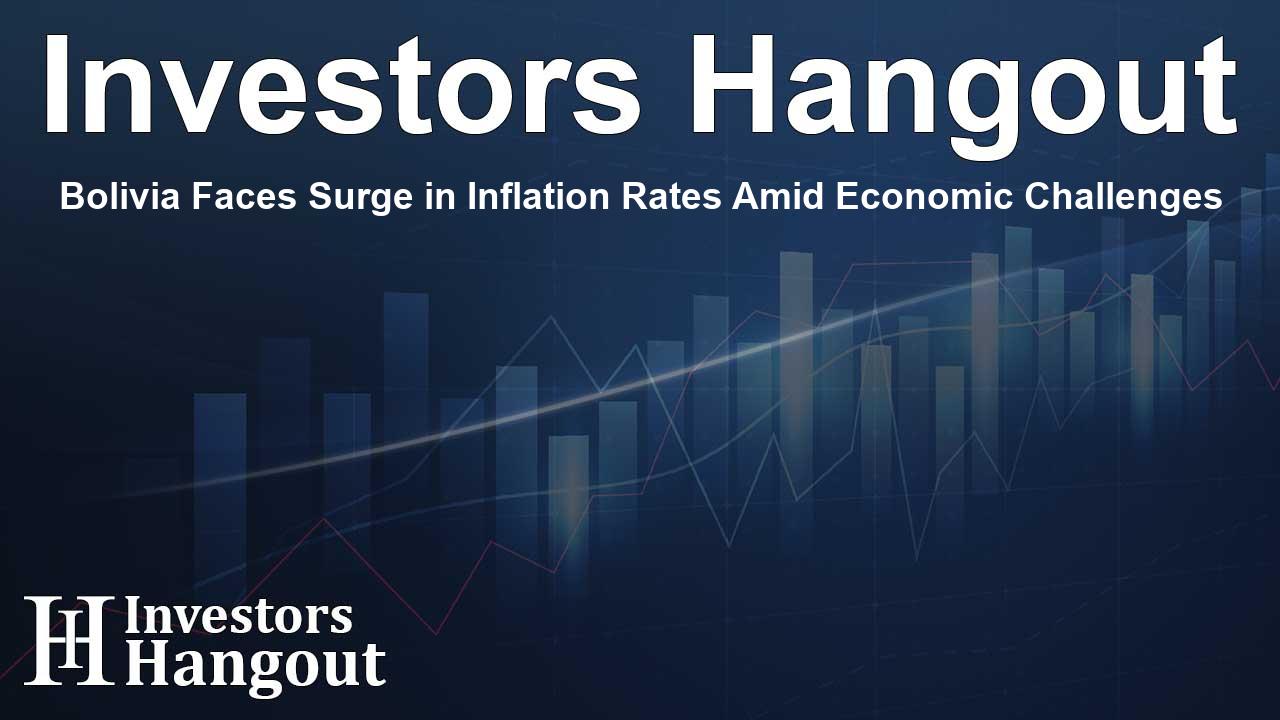Bolivia Faces Surge in Inflation Rates Amid Economic Challenges

Bolivia's Inflation Crisis: A Decade-High Challenge
Bolivia is currently experiencing a significant inflation challenge, with recent data revealing that the inflation rate has surged to its highest point in nearly ten years, reaching a striking 5.19% over the past 12 months. This increase, which marks a monthly rise of 1.58%, highlights the ongoing economic issues facing the nation.
The Context of Rising Inflation
This inflation rate stands well above the central bank's target of 3.6% for the current year, reflecting a broader economic struggle. Looking back, the last time annualized inflation figures were this high was in February 2015, while the last monthly price increase of this magnitude occurred over 13 years ago.
Impact of Rising Prices on Bolivians
Cumulatively, inflation over the first eight months of the year has reached 4.61%. In contrast, this time last year, August inflation was just 0.39%, coupled with an eight-month rate of 1.55%. Such stark contrasts indicate that Bolivians are feeling the pinch of rising prices more than ever before.
Factors Contributing to Inflation
INE director Humberto Arandia has publicly addressed the specific factors leading to this inflation surge. Notably, essential items such as rice, chicken, and tomatoes have seen significant price increases. The monthly price hikes have been especially pronounced in leisure and cultural activities, as well as responsibilities related to goods, services, furniture, and domestic work. However, it's worth noting that categories like education and transportation have seen price declines, offering some relief to consumers.
Ongoing Economic Challenges for Bolivia
The economic landscape in Bolivia is further complicated by environmental challenges. The nation is grappling with its highest number of wildfire outbreaks in 14 years, which have forced many farmers to abandon their fields, negatively impacting agricultural output and food supply. In addition, strikes related to prolonged fuel shortages have disrupted trade and transportation, exacerbating the economic turmoil.
Looking Ahead for Bolivia
The country closed out the previous year with an annual inflation rate of 2.12%, underscoring the severity of the current inflationary pressures. As these challenges unfold, it is clear that the government and central bank will need to strategize effectively to mitigate the impact of rising prices on the Bolivian population.
Frequently Asked Questions
What is the current inflation rate in Bolivia?
The current inflation rate in Bolivia stands at 5.19%, the highest in nearly a decade.
What are the main contributing factors to this inflation?
Key contributors include rising prices for staples like rice and chicken, as well as economic challenges like wildfires and fuel shortages.
How does this inflation rate compare to last year?
In August of the previous year, inflation was significantly lower at 0.39%.
What measures are being taken to address inflation?
Government and central bank strategies are essential in mitigating inflation's impact, but specific measures have yet to be detailed.
How can inflation affect consumers in Bolivia?
Rising prices on essential goods pressures household budgets, impacting overall quality of life and economic stability.
About The Author
Contact Owen Jenkins privately here. Or send an email with ATTN: Owen Jenkins as the subject to contact@investorshangout.com.
About Investors Hangout
Investors Hangout is a leading online stock forum for financial discussion and learning, offering a wide range of free tools and resources. It draws in traders of all levels, who exchange market knowledge, investigate trading tactics, and keep an eye on industry developments in real time. Featuring financial articles, stock message boards, quotes, charts, company profiles, and live news updates. Through cooperative learning and a wealth of informational resources, it helps users from novices creating their first portfolios to experts honing their techniques. Join Investors Hangout today: https://investorshangout.com/
The content of this article is based on factual, publicly available information and does not represent legal, financial, or investment advice. Investors Hangout does not offer financial advice, and the author is not a licensed financial advisor. Consult a qualified advisor before making any financial or investment decisions based on this article. This article should not be considered advice to purchase, sell, or hold any securities or other investments. If any of the material provided here is inaccurate, please contact us for corrections.
